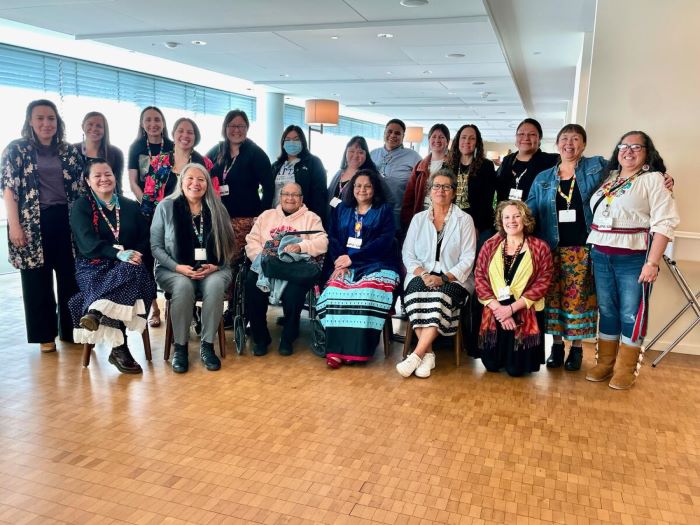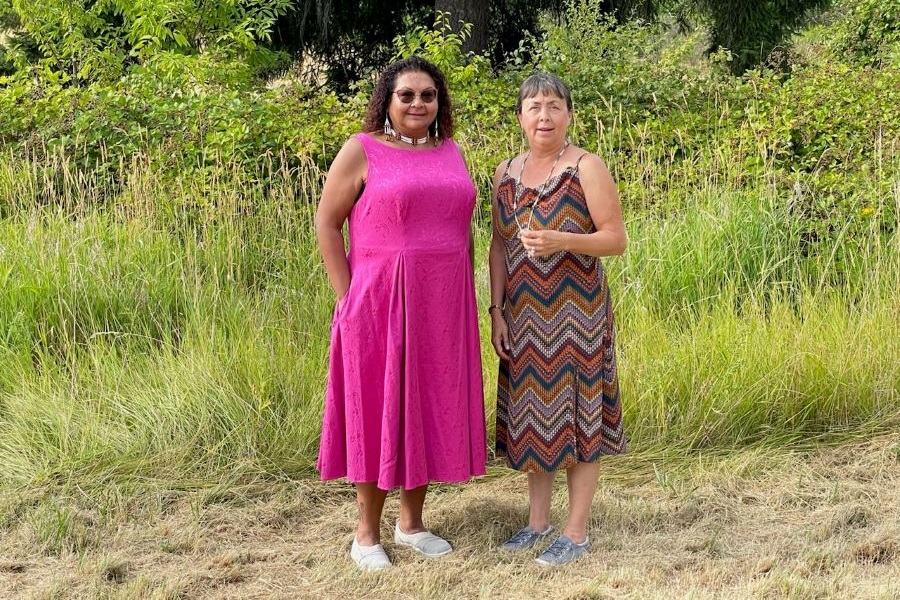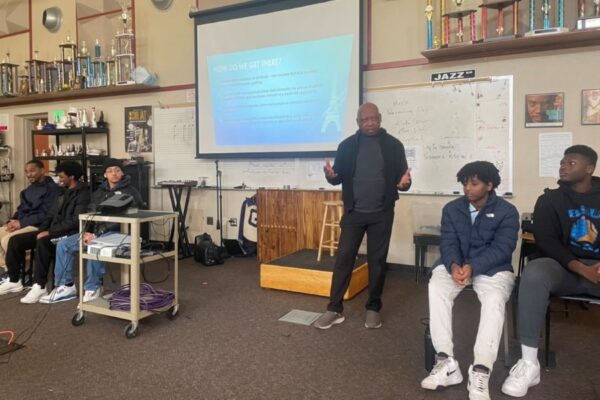Advocacy and Support for Indigenous Babies, Moms, and Families
United Way of King County’s Indigenous Communities Fund was launched in 2020 to provide Indigenous communities with resources to address COVID-19’s impact. The Indigenous Communities Fund is a participatory funding process that gives the Indigenous community autonomy to disperse revenue where it is needed most. The first funding to the Indigenous Communities Fund ($1 million) was used as COVID relief and restricted to food and housing; it went to four organizations comprising the Seattle-based Coalition to End Urban Indian Homelessness. Since then, $2 million has been allocated with no restrictions to the 12-member Seattle Urban Native Nonprofits.
United Way highlights the work of Seattle Urban Native Nonprofit members with occasional profiles. Today, we highlight Native American Women’s Dialog on Infant Mortality or NAWDIM. The organization is a collective of Indigenous healthcare providers, community members, grandmothers, and allies who provide advocacy, education, and support for Indigenous infants, mothers, and families across the state. We sat down with co-coordinators Shelley Means [Ojibwe/Lakota] and Leah Henry-Tanner [Nez Perce] to learn more.
United Way of King County: What are the origins of Native American Women’s Dialog on Infant Mortality?
Leah Henry-Tanner: NAWDIM was started in 2000 when a group of Native women and allies heard some disturbing information about infant mortality in our community. That group went to the director of public health in King County at that time. They persuaded him to give them some funding so that they could start addressing this horrible issue. I was really fortunate to be the first community organizer for NAWDIM and then, over the years, we started plugging into different Native organizations in Seattle and King County to bring awareness about the issue. It wasn’t being addressed because people didn’t know about it. Our communities are so isolated at times and people struggle in silence.
Once we started bringing some awareness to different Native organizations, people responded well and worked together to address the issue.
United Way of King County: Where did you go from there?
Leah Henry-Tanner: Over the years we developed our Cradleboard Project, which has been really fun to do and such a key thing for folks who have not had access to their direct tribal communities. Being able to build connections and do something traditional has been really beneficial and has generated really great outcomes that we didn’t really anticipate. We’ve also been involved in a number of policy areas. Back in 2015 one of our NAWDIM founding members was the chair of the governor’s Interagency Council on Health Disparities. We came up with some recommendations to improve outcomes for Washington state.
Leah Henry-Tanner [continued]: We’ve been really careful to make sure our work is community-centered and we’ve been pretty successful at that.
United Way of King County: How has the Indigenous Communities Fund bolstered your work?
Shelley Means: We’re not like most nonprofit organizations, which are building and growing other organizations; we’re a convener of our community around these topics of maternal and infant health. Working in silos and funders working in silos is not always the most helpful thing. Having a restricted fund often doesn’t give us access to continue doing our work because we are not a public health silo.
The Indigenous Communities Fund is so critical for organizations like ours because we can step into our own circle as opposed to being forced to step into a funder’s box. The way we evaluate the impact of our work comes from our circle of people at our table saying, “This is where our work needs to move forward,” and we can collectively go there.
United Way of King County: What are some of the ways you’ve worked with communities?
Shelley Means: One of the things we’ve done over 20 years has been to pull our community together to create a strategic vision and ask what we see going on as it relates to babies, moms, and families. And are we all up to speed on who is providing which services that they need? And then we facilitate a process to say everybody talks to us about the priorities. What do we need to do in the next five years within our organizations? It’s a guidepost for a lot of our groups and a way of shoring up what we instinctively know.
One example is that, five or six years ago, the issue that came out stronger than anything else was that we really needed to break down the social isolation by having Native-trained birth support people and medical providers. All of those things became a priority for a bunch of our groups. We supported one of our groups and leaders in developing a doula program that has grown exponentially over the last five or six years. Parents birthing babies in our communities have many more options than they had five or six years ago.

United Way of King County: How have you brought equity into local agencies providing services to Indigenous mothers-to-be?
Shelley Means: NAWDIM helped with a new program at King County, where they looked at their health and social services programs and said that it mostly serves white people. They recognized that the worst health disparities are experienced in the Black, Indigenous, Native Hawaiian, and Alaska Native communities. We were able, through some advisory communities, to help them design a program called Family Ways. They are Indigenous providers, resource people, social workers, and nutritionists serving our families who walked through the door. NAWDIM is part of this web of keeping people connected.
United Way of King County: What are some of the realities about infant mortality in Indigenous communities?
Leah Henry-Tanner: Unfortunately, it continues to remain high. It’s really troubling to see because our population is so small and because we are so isolated it feels like we are often an invisible population. We have always paid attention to it. But I cannot tell you how many national meetings I’ve gone to for maternal child health where we are completely disregarded. Part of our struggle is to even have a seat at the table where conversations are happening.
Luckily, through our relationships with groups across the country and funding from the Kellogg Foundation, we have started developing a plan to really start addressing this nationally as well as locally. There are more opportunities to share our stories at a larger table. If we could all just work together it would improve things for everybody; that is our goal. Despite the genocide that was committed against our ancestors we’re still here; we’re still fighting the good fight.
There are things happening in our community that are an ongoing struggle, but there are people working to address that, so our kids will graduate from high school and be successful after high school, and our families are strong and supported and have access to health care that is provided in a sensitive way.



Comments